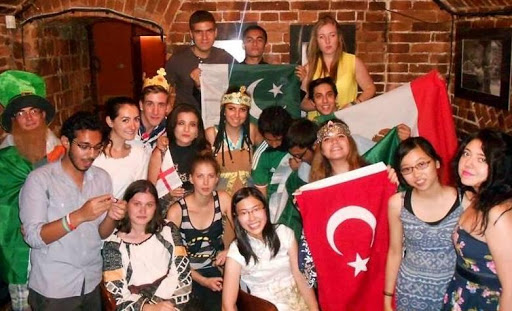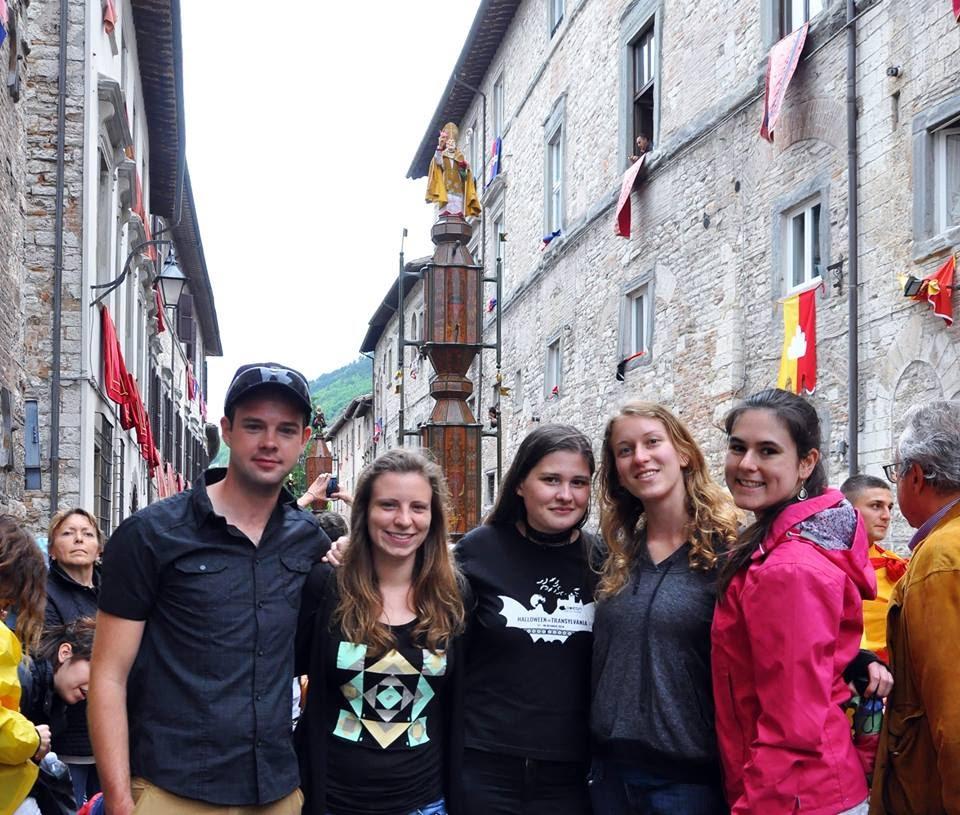
While living in Mozambique, my friend Nicolò was left behind to guard a goat without even realising what he’d agreed to. His local friends had bought it as a source of fresh meat for a party that was happening later on. He sat in his yard looking at the tranquil creature and wondering… about languages, traditions, but mostly about his hilariously random life, which had been turned upside down since he’d moved to Africa.

I’ve never experienced anything of the sort. When I first moved away from home, from Cluj to Krakow, I approached anyone I overheard speaking Romanian, my mother tongue, with big eyes that welled with longing. However, after just one month, I strutted around so comfortably that locals would often ask me things about the bus schedule and eye me suspiciously when I responded with “przepraszam, nie mówię po polsku”, which was quite the tongue twister. I inhabited a perfect artificial ecosystem of internationals. My friends were from Hong Kong, Turkey, Australia, Egypt, Mexico, Iran, Malta, the United Kingdom, places I’d only seen on TV. By their side, flourishing through the possibility of self-expression in English, our lingua franca, I felt like I belonged. We were all different, from each other and from the locals. This made us unite in a strange community that was like a bubble surfing above the Polish day to day.

It’s not all rosy though, shifting countries. Even if the similarities betrayed geographical proximity and sustained interaction amongst our cultures over the past centuries, my old home and the new one couldn’t have been more different. I had to learn everything all over again: how to bargain at the flea market, where to go for groceries, where to do my laundry. The dormitory doorman and I had our own hybrid language. I would draw things for him so that he could see what I needed. It was like playing Pictionary for basic subsistence.
When I was studying in Italy and could barely speak any Italian, I had to take classes on Literary Criticism. Trying to keep up with the professor’s dictation was challenging to say the least, seeing as I could barely order a coffee and a biscuit. I offered my colleagues free concertos of sighs, grunts, and defeated tosses of the ballpoint pen, until one lucky day I sat next to Emilio, who would help me fill in gaps and explain things to me in English whispering discreetly. We’d run into each other in restaurants and bars, he’d say “I’ve never been here”, I’d answer “Me and my friends have been coming here for months, it’s our favourite” and the look on his face encompassed everything about how being foreign was fragile and fleeting. It’s not every day that you get to teach a local about his own town.

A few months ago I settled on the edge of the continent, in Portugal. I hauled my bags along through the scorching September heat and when I reached the dormitories things couldn’t have gone worse. I wasn’t on any list or memo, everyone distrusted the entitlement with which I demanded the key for room 228 and no matter how many times I pointed at the landline and said “Serviços de Relações Internacionais” a phone call never happened. What did happen though was Clementino. He played the interpreter between me and staff, never leaving my side until I had a key in my palm. I never even thought of asking for help. It came as naturally as a smile comes on the face of someone who’s been given good news.
What is culture shock, really? Is it babysitting a goat in your backyard, seeing communication fail tragically, being unaware of the most banal things that contribute to your comfort and well-being, but starting to appreciate them once they become difficult to reach? What matters, ultimately, is that it crumbles quickly, with help from strangers who then become your friends. It’s a necessary shudder that lets us know how far we’ve gone.
Nothing feels rewarding unless you’ve won it, after all, and it’s the same with becoming naturalised in a new country.
